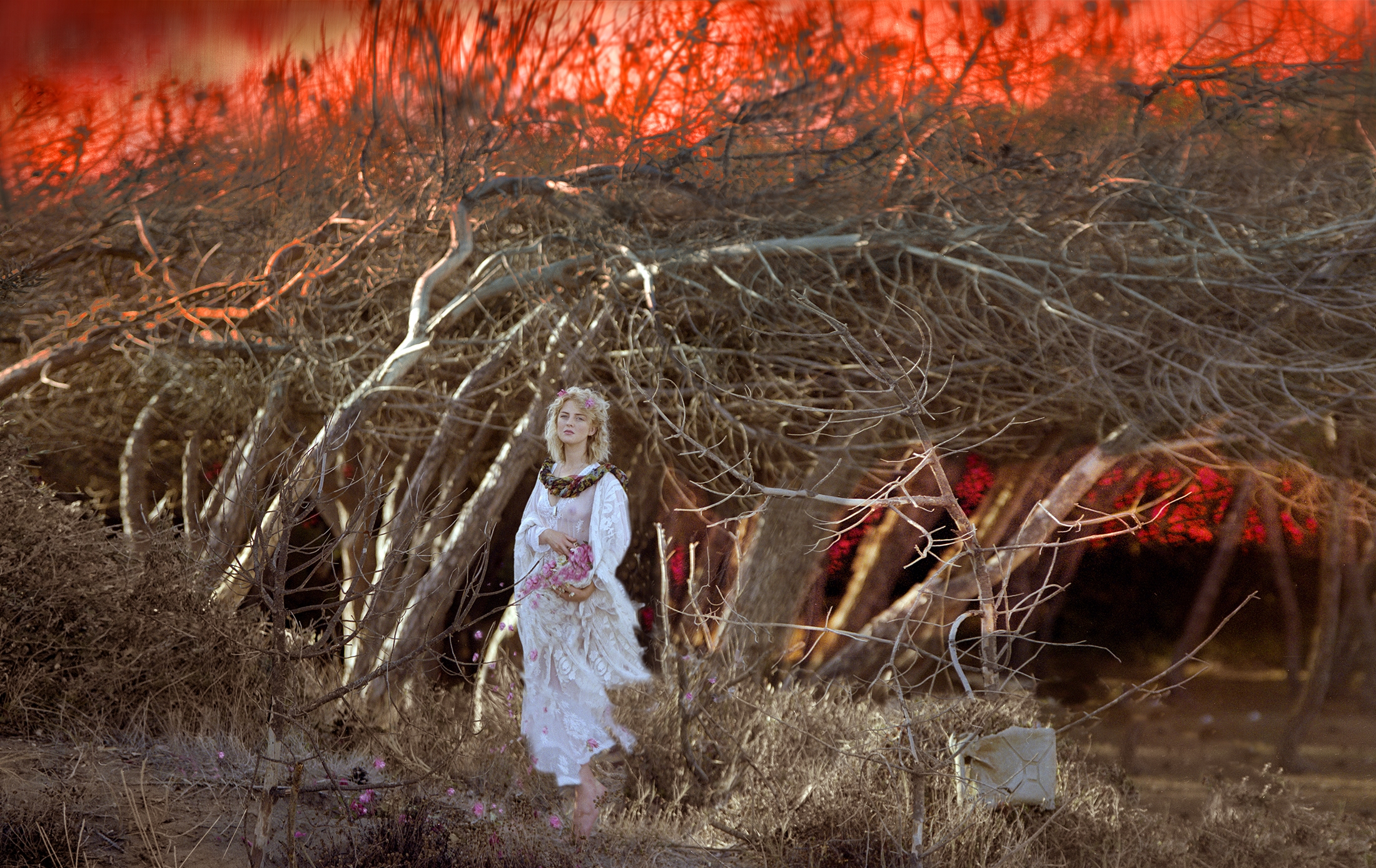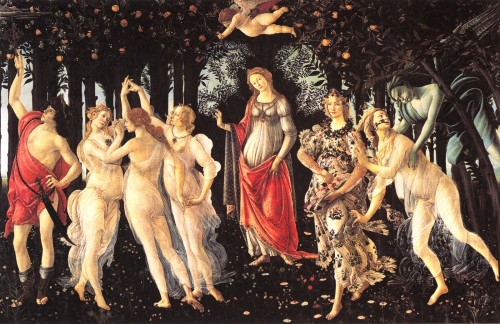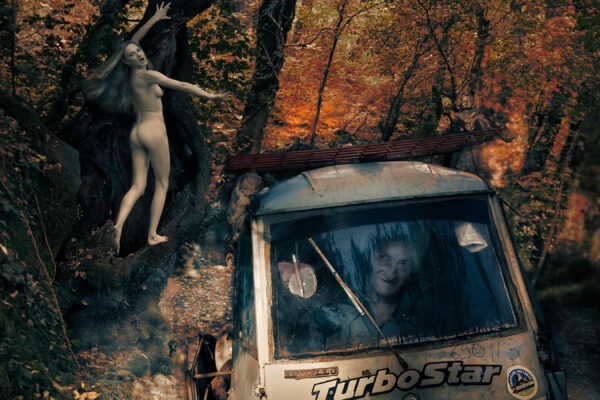
Flora Furiosa 2007
Botticelli’s masterpiece is a complicated painting and experts still argue over its meaning. It is also a very full painting with the three Graces, Venus, Mercury, Cupid, Zephyr, blowing on the nymph Chloris and the figure she metamorphosed into, Flora, scattering flowers.
In 2007 I met a young girl of nineteen in my gallery in Orvieto on her last day in Italy who bore such a striking resemblance to Flora that I asked her immediately if she would be interested in posing for me. The only problem was that Imogen could not live further away, New Zealand. However, I managed to whisk her away from family in Belfast for a day in Italy before she left for home.
Flora arrives in May but nowadays in Italy, May is also the beginning of the forest fire season and 2007, after an extraordinarily mild winter, was to be the worst year ever. We went to the mediterranean coast in early October to where a recent fire had ravaged the pine forest. We even found half melted plastic jerrycan and lighter on the very spot where Imogen was to pose – left by the culprits? Arsonists started hundreds of fires: hundreds of thousands of animals died, homes and property were destroyed and several people horribly killed.
The Italian press almost invariably refers to these criminals as pyromaniacs, when they are nothing of the sort, at the very least there is method to the madness. Is there an environmental crime crueler than arson?
Flora, although only a minor Roman goddess, was popular with renaissance humanists as a part maternal, part erotic figure and is appropriately portrayed semi-nude in transparent muslin. She is scattering pink flowers from the folds in her dress, but how can mere flowers compete with the destruction of an entire forest? The expression on Imogen’s face is part sad, part angry, perhaps Flora should learn from Minerva the ferocious Roman goddess of culture -take up arms! – if you want to keep something you have to fight for it!
“Oh mia patria si bella e perduta!
Oh membranza sì cara e fatal!”
“Oh, my country so lovely and lost!
Oh, remembrance so dear and so
fraught with despair!”
Va Pensiero from the Opera “Nabucco” by G.Verdi





